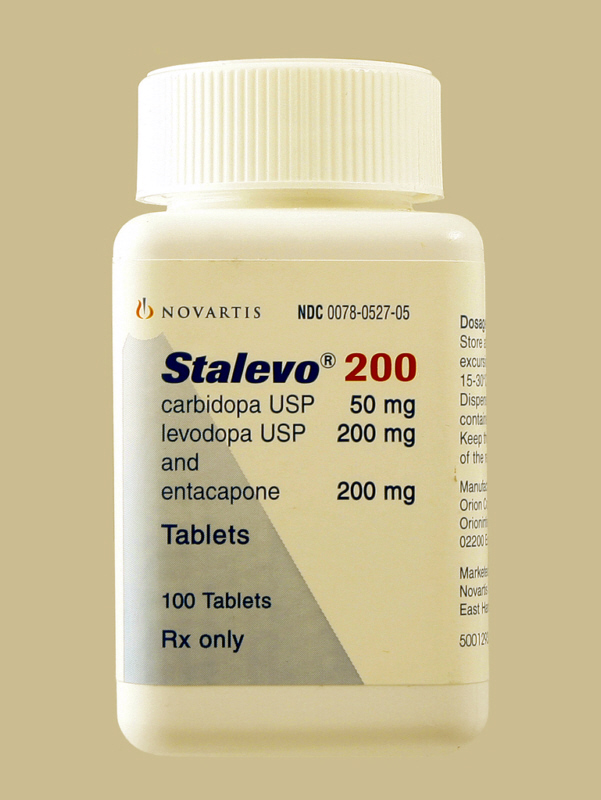30th March
2013 - New book
PARKINSON'S TREATMENT : 10 SECRETS TO A HAPPIER LIFE
Michael S.Okun MD
 Publisher's
description : I never assume a sufferer or family member is aware of the
�secrets� that may lead to hope and to a happier life. We must share these
secrets, and this is the purpose of this book. Each chapter of this book reveals
an important secret, and with each secret I will explain the insight, the
rationale, the empiricism, and the science behind it. In each chapter I will
also try to reveal a little more about myself, and a lot more about the patients
and talented clinicians who gifted the Parkinson's secrets. These patients
planted the seed of faith. They learned to grow hope, and they discovered the
core values necessary to achieve happiness despite the chronic illness of
Parkinson's disease.
Click here for more details. For
more books concerning Parkinson's Disease go to
Parkinson's Disease Books.
Publisher's
description : I never assume a sufferer or family member is aware of the
�secrets� that may lead to hope and to a happier life. We must share these
secrets, and this is the purpose of this book. Each chapter of this book reveals
an important secret, and with each secret I will explain the insight, the
rationale, the empiricism, and the science behind it. In each chapter I will
also try to reveal a little more about myself, and a lot more about the patients
and talented clinicians who gifted the Parkinson's secrets. These patients
planted the seed of faith. They learned to grow hope, and they discovered the
core values necessary to achieve happiness despite the chronic illness of
Parkinson's disease.
Click here for more details. For
more books concerning Parkinson's Disease go to
Parkinson's Disease Books.
24th March 2103 - News release
NEW L-DOPA PRODUCT EXCEEDS THE EFFECT OF STALEVO
A new L-dopa product, which is presently called ODM-101, significantly decreased
daily OFF-time without increasing ON-time with troublesome dyskinesias when
compared to Stalevo, which is a standard medication in advanced Parkinson's
Disease when people experience end-of-dose wearing off symptoms using L-dopa.
Stalevo contains three active substances in one tablet : L-dopa, plus carbidopa
and entacapone, both of which help to maintain L-dopa levels. For more
information go to
Stalevo.
ODM-101 has the same components as Stalevo but has a higher and fixed amount of
carbidopa (either 65mg or 105 mg) regardless of the L-dopa dosage. As it made by
the same manufacturers it is effectively an improved form of Stalevo.
 People
with Parkinson's Disease were given two forms of ODM-101 with two different
amounts of carbidopa : ODM-101/65mg and ODM-101/105mg. Both of them reduced
daily OFF-time more than Stalevo. ODM-101/105mg was marginally better than
ODM-101/65mg. Similarly, both ODM-101 combinations increased the ON-time without
troublesome dyskinesia significantly more than Stalevo. There were no
significant differences between the treatments in ON-time with troublesome
dyskinesia or in UPDRS II and III symptom scores. Overall, tolerability and
safety of ODM-101 was comparable to that of Stalevo. For more information
go to the
News release.
For a printable version of this article
click here. In order to
refer to this article on its own
click here.
People
with Parkinson's Disease were given two forms of ODM-101 with two different
amounts of carbidopa : ODM-101/65mg and ODM-101/105mg. Both of them reduced
daily OFF-time more than Stalevo. ODM-101/105mg was marginally better than
ODM-101/65mg. Similarly, both ODM-101 combinations increased the ON-time without
troublesome dyskinesia significantly more than Stalevo. There were no
significant differences between the treatments in ON-time with troublesome
dyskinesia or in UPDRS II and III symptom scores. Overall, tolerability and
safety of ODM-101 was comparable to that of Stalevo. For more information
go to the
News release.
For a printable version of this article
click here. In order to
refer to this article on its own
click here.
23rd March 2013 - New research
PIMAVANSERIN CLINICAL TRIAL RESULTS IN
PARKINSON'S DISEASE
In a phase III clinical trial, Pimavanserin had effect in the treatment of
psychosis in Parkinson's Disease. Parkinson�s Disease Psychosis usually consists
of visual hallucinations and delusions. It is normally due to Parkinson's
Disease drugs not Parkinson's Disease. It eventually occurs in up to 60%
of people with Parkinson's Disease. Pimavanserin is an antagonist of serotonin
5-HT2A receptors. It is taken orally as a tablet once-a-day.
 Patients
took 40mg Pimavanserin for only six weeks. So its long term effects have not
been assessed. The adverse events were little different from those found in
people taking a placebo. Pimavanserin demonstrated significant antipsychotic
efficacy and significant improvements in all secondary efficacy measures.
Statistically significant benefits were also observed in exploratory measures of
nighttime sleep, daytime wakefulness, and caregiver burden. For more information
go to the
News release.
For a printable version of this article
click here. In order to
refer to this article on its own
click here.
Patients
took 40mg Pimavanserin for only six weeks. So its long term effects have not
been assessed. The adverse events were little different from those found in
people taking a placebo. Pimavanserin demonstrated significant antipsychotic
efficacy and significant improvements in all secondary efficacy measures.
Statistically significant benefits were also observed in exploratory measures of
nighttime sleep, daytime wakefulness, and caregiver burden. For more information
go to the
News release.
For a printable version of this article
click here. In order to
refer to this article on its own
click here.
14th March 2013 - New research
BEING OVERWEIGHT IS MORE PREVALENT IN
PARKINSON'S DISEASE
Arquivos de Neuropsiquiatra [2012] 70 (11) : 843-846 (H.Morales-Brice�o,
A.Cervantes-Arriaga, M.Rodr�guez-Violante, J.Calleja-Castillo, T.Corona)
Complete abstract
 Underweight
and malnutrition are well documented in Parkinson's Disease (PD), while being
overweight has been less reported. Researchers carried out a study comparing the
weight and height of people with and without Parkinson's Disease. In those
people with Parkinson's Disease only 1% were underweight, 33% were within the
normal range, 47%% were overweight, and 19% were obese. Being normal weight and
overweight were more prevalent in those people who had Parkinson's Disease when
compared to those people who did not. Being obese and, even moreso, being
underweight were more common in those people who did not have Parkinsons'
Disease.
For a printable version of this article
click here. In order to
refer to this article on its own
click here.
Underweight
and malnutrition are well documented in Parkinson's Disease (PD), while being
overweight has been less reported. Researchers carried out a study comparing the
weight and height of people with and without Parkinson's Disease. In those
people with Parkinson's Disease only 1% were underweight, 33% were within the
normal range, 47%% were overweight, and 19% were obese. Being normal weight and
overweight were more prevalent in those people who had Parkinson's Disease when
compared to those people who did not. Being obese and, even moreso, being
underweight were more common in those people who did not have Parkinsons'
Disease.
For a printable version of this article
click here. In order to
refer to this article on its own
click here.
5th March 2013 - News release
CLINICAL TRIAL OF SUBCUTANEOUS L-DOPA FOR
PARKINSON'S DISEASE
 NeuroDerm
announced today the results of a Phase I safety and pharmacokinetic trial of
ND0612. ND0612 is a novel drug formulation for the treatment of Parkinson�s
Disease. NeuroDerm is a pharmaceutical company that specializes in the
development of novel dermal delivery routes for CNS drugs.
NeuroDerm
announced today the results of a Phase I safety and pharmacokinetic trial of
ND0612. ND0612 is a novel drug formulation for the treatment of Parkinson�s
Disease. NeuroDerm is a pharmaceutical company that specializes in the
development of novel dermal delivery routes for CNS drugs.
ND0612 is a combination of L-dopa and carbidopa, as is Sinemet, but it is a
liquid formula administered continuously sub-cutaneously (via the skin) through
a patch pump. It is designed to provide steady L-dopa blood levels for the
reduction of motor complications in Parkinson�s Disease.
In this double-blind, placebo controlled, dose-escalation trial in young,
healthy volunteers, ND0612 was shown to be safe and tolerable in all of the
tested doses. Clinically meaningful L-dopa concentrations were reached. For the
first time in humans, steady state L-dopa concentrations were maintained in a
practical manner both day and night, thereby enabling more even levels of L-dopa
than oral forms of L-dopa. The full results of this study will be presented at a
future scientific meeting. For more information go to the
News release
For a printable version of this article
click here. In order to
refer to this article on its own
click here.
4th March 2013
- New book
HOW TO LIVE WELL WITH PARKINSON'S : ADVICE FROM A PHYSICAL THERAPIST
Miriam P. Boelen
 Publisher's
description : People with Parkinson�s commonly have symptoms and problems unique
to their condition that can interfere with daily activities. When initially
diagnosed they all too often don�t know what to do or where to turn. This book,
written specifically for them, clears up questions they may have regarding their
self-help. It gives step by step instructions in properly handling daily
activities like walking, getting out of bed or chairs, and other potentially
problematic everyday movements. It also guides them in finding the optimal
medical team to help them stay well. For caregivers there are easy-to-follow
instructions in safely assisting a person with PD without jeopardizing
themselves or the one they are helping.
Click here for more details. For
more books concerning Parkinson's Disease go to
Parkinson's Disease Books.
Publisher's
description : People with Parkinson�s commonly have symptoms and problems unique
to their condition that can interfere with daily activities. When initially
diagnosed they all too often don�t know what to do or where to turn. This book,
written specifically for them, clears up questions they may have regarding their
self-help. It gives step by step instructions in properly handling daily
activities like walking, getting out of bed or chairs, and other potentially
problematic everyday movements. It also guides them in finding the optimal
medical team to help them stay well. For caregivers there are easy-to-follow
instructions in safely assisting a person with PD without jeopardizing
themselves or the one they are helping.
Click here for more details. For
more books concerning Parkinson's Disease go to
Parkinson's Disease Books.
.gif)
.gif)
 Publisher's
description : I never assume a sufferer or family member is aware of the
�secrets� that may lead to hope and to a happier life. We must share these
secrets, and this is the purpose of this book. Each chapter of this book reveals
an important secret, and with each secret I will explain the insight, the
rationale, the empiricism, and the science behind it. In each chapter I will
also try to reveal a little more about myself, and a lot more about the patients
and talented clinicians who gifted the Parkinson's secrets. These patients
planted the seed of faith. They learned to grow hope, and they discovered the
core values necessary to achieve happiness despite the chronic illness of
Parkinson's disease.
Publisher's
description : I never assume a sufferer or family member is aware of the
�secrets� that may lead to hope and to a happier life. We must share these
secrets, and this is the purpose of this book. Each chapter of this book reveals
an important secret, and with each secret I will explain the insight, the
rationale, the empiricism, and the science behind it. In each chapter I will
also try to reveal a little more about myself, and a lot more about the patients
and talented clinicians who gifted the Parkinson's secrets. These patients
planted the seed of faith. They learned to grow hope, and they discovered the
core values necessary to achieve happiness despite the chronic illness of
Parkinson's disease.
 People
with Parkinson's Disease were given two forms of ODM-101 with two different
amounts of carbidopa : ODM-101/65mg and ODM-101/105mg. Both of them reduced
daily OFF-time more than Stalevo. ODM-101/105mg was marginally better than
ODM-101/65mg. Similarly, both ODM-101 combinations increased the ON-time without
troublesome dyskinesia significantly more than Stalevo. There were no
significant differences between the treatments in ON-time with troublesome
dyskinesia or in UPDRS II and III symptom scores. Overall, tolerability and
safety of ODM-101 was comparable to that of Stalevo. For more information
go to the
People
with Parkinson's Disease were given two forms of ODM-101 with two different
amounts of carbidopa : ODM-101/65mg and ODM-101/105mg. Both of them reduced
daily OFF-time more than Stalevo. ODM-101/105mg was marginally better than
ODM-101/65mg. Similarly, both ODM-101 combinations increased the ON-time without
troublesome dyskinesia significantly more than Stalevo. There were no
significant differences between the treatments in ON-time with troublesome
dyskinesia or in UPDRS II and III symptom scores. Overall, tolerability and
safety of ODM-101 was comparable to that of Stalevo. For more information
go to the  Patients
took 40mg Pimavanserin for only six weeks. So its long term effects have not
been assessed. The adverse events were little different from those found in
people taking a placebo. Pimavanserin demonstrated significant antipsychotic
efficacy and significant improvements in all secondary efficacy measures.
Statistically significant benefits were also observed in exploratory measures of
nighttime sleep, daytime wakefulness, and caregiver burden. For more information
go to the
Patients
took 40mg Pimavanserin for only six weeks. So its long term effects have not
been assessed. The adverse events were little different from those found in
people taking a placebo. Pimavanserin demonstrated significant antipsychotic
efficacy and significant improvements in all secondary efficacy measures.
Statistically significant benefits were also observed in exploratory measures of
nighttime sleep, daytime wakefulness, and caregiver burden. For more information
go to the  Underweight
and malnutrition are well documented in Parkinson's Disease (PD), while being
overweight has been less reported. Researchers carried out a study comparing the
weight and height of people with and without Parkinson's Disease. In those
people with Parkinson's Disease only 1% were underweight, 33% were within the
normal range, 47%% were overweight, and 19% were obese. Being normal weight and
overweight were more prevalent in those people who had Parkinson's Disease when
compared to those people who did not. Being obese and, even moreso, being
underweight were more common in those people who did not have Parkinsons'
Disease.
For a printable version of this article
Underweight
and malnutrition are well documented in Parkinson's Disease (PD), while being
overweight has been less reported. Researchers carried out a study comparing the
weight and height of people with and without Parkinson's Disease. In those
people with Parkinson's Disease only 1% were underweight, 33% were within the
normal range, 47%% were overweight, and 19% were obese. Being normal weight and
overweight were more prevalent in those people who had Parkinson's Disease when
compared to those people who did not. Being obese and, even moreso, being
underweight were more common in those people who did not have Parkinsons'
Disease.
For a printable version of this article
 NeuroDerm
announced today the results of a Phase I safety and pharmacokinetic trial of
ND0612. ND0612 is a novel drug formulation for the treatment of Parkinson�s
Disease. NeuroDerm is a pharmaceutical company that specializes in the
development of novel dermal delivery routes for CNS drugs.
NeuroDerm
announced today the results of a Phase I safety and pharmacokinetic trial of
ND0612. ND0612 is a novel drug formulation for the treatment of Parkinson�s
Disease. NeuroDerm is a pharmaceutical company that specializes in the
development of novel dermal delivery routes for CNS drugs.  Publisher's
description : People with Parkinson�s commonly have symptoms and problems unique
to their condition that can interfere with daily activities. When initially
diagnosed they all too often don�t know what to do or where to turn. This book,
written specifically for them, clears up questions they may have regarding their
self-help. It gives step by step instructions in properly handling daily
activities like walking, getting out of bed or chairs, and other potentially
problematic everyday movements. It also guides them in finding the optimal
medical team to help them stay well. For caregivers there are easy-to-follow
instructions in safely assisting a person with PD without jeopardizing
themselves or the one they are helping.
Publisher's
description : People with Parkinson�s commonly have symptoms and problems unique
to their condition that can interfere with daily activities. When initially
diagnosed they all too often don�t know what to do or where to turn. This book,
written specifically for them, clears up questions they may have regarding their
self-help. It gives step by step instructions in properly handling daily
activities like walking, getting out of bed or chairs, and other potentially
problematic everyday movements. It also guides them in finding the optimal
medical team to help them stay well. For caregivers there are easy-to-follow
instructions in safely assisting a person with PD without jeopardizing
themselves or the one they are helping.